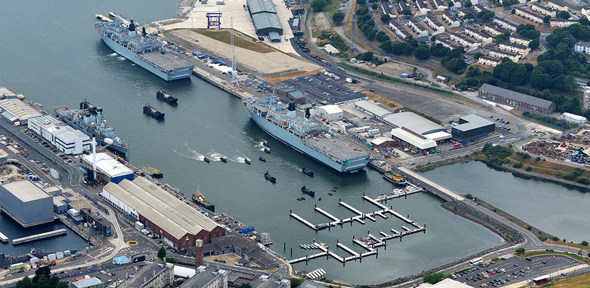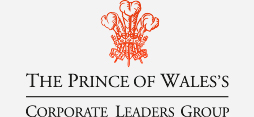
12 August 2016 – Members of The Prince of Wales’s Corporate Leaders Group, with guests from Business in the Community and the Institute for Environmental Management and Assessment, hold high-level talks on policy needed to drive the circular economy.
Recognising the need to work at scale to drive resource productivity and decarbonise the economy, members of The Prince of Wales’s Corporate Leaders Group (CLG), along with guests from Business in the Community (BiTC) and the Institute for Environmental Management and Assessment (IEMA) recently held high-level talks on new policy needed to drive the circular economy. At the end of the two-day meeting, hosted by MVV Environment Devonport Ltd, the group of business leaders shared key insights from their discussion with The Prince of Wales.
The meeting involved businesses from these groups engaging with industry and local authority practitioners, carrying out site visits to the host’s energy from waste plant and to the Royal Navy at HMNB Devonport, which receives the heat from the plant. The group developed their ideas on how to frame the challenges and opportunities around resource efficiency and in doing so improve productivity, competitiveness and environmental protection.
The venue helped to position the discussion in the reality of the current UK context, as many local authorities battle with static recycling rates and strive to improve their waste management performance. Industry representatives outlined how the waste sector is responding to this challenge through innovative collaborations with business. They also highlighted the difficulty of building new business models given the volatility in recyclate prices, competitiveness of primary raw materials, challenges of planning, lack of coherent policy drivers, and poor general awareness of the cost of waste to landfill.
The group presented observations from the discussion to The Prince of Wales, highlighting the many opportunities of maximising value from secondary commodities, such as skills development and jobs, efficiency savings and local enterprise. They stressed the benefits of a strategic UK-wide resource management policy framework. The new framework would align incentives and encourage supply chain and cross sector collaborations to drive change, drawing lessons from progress in countries such as China and Japan and the EU’s Circular Economy package.
The clear message from business leaders was that shifting to more circular thinking in the UK represents a major economic opportunity. This will only be possible, however, by encouraging further business innovation alongside the implementation of suitably aligned frameworks and policy mechanisms. This would allow investment into new business models, deepening the business relationship with secondary commodities and new markets to be found for materials currently treated as waste.
These discussions will inform a collaborative report on the economic benefits of the circular economy that will be presented to HM Treasury at the end of this year. The collaboration between the University of Cambridge Institute for Sustainability Leadership (CISL), BiTC, WRAP and Accounting for Sustainability (A4S) will set out the economic benefits for the UK in the context of increased productivity, reduced carbon emissions and export potential.





 David Webb is a Programme Manager of The Prince of Wales’s Corporate Leaders Group.
David Webb is a Programme Manager of The Prince of Wales’s Corporate Leaders Group. 